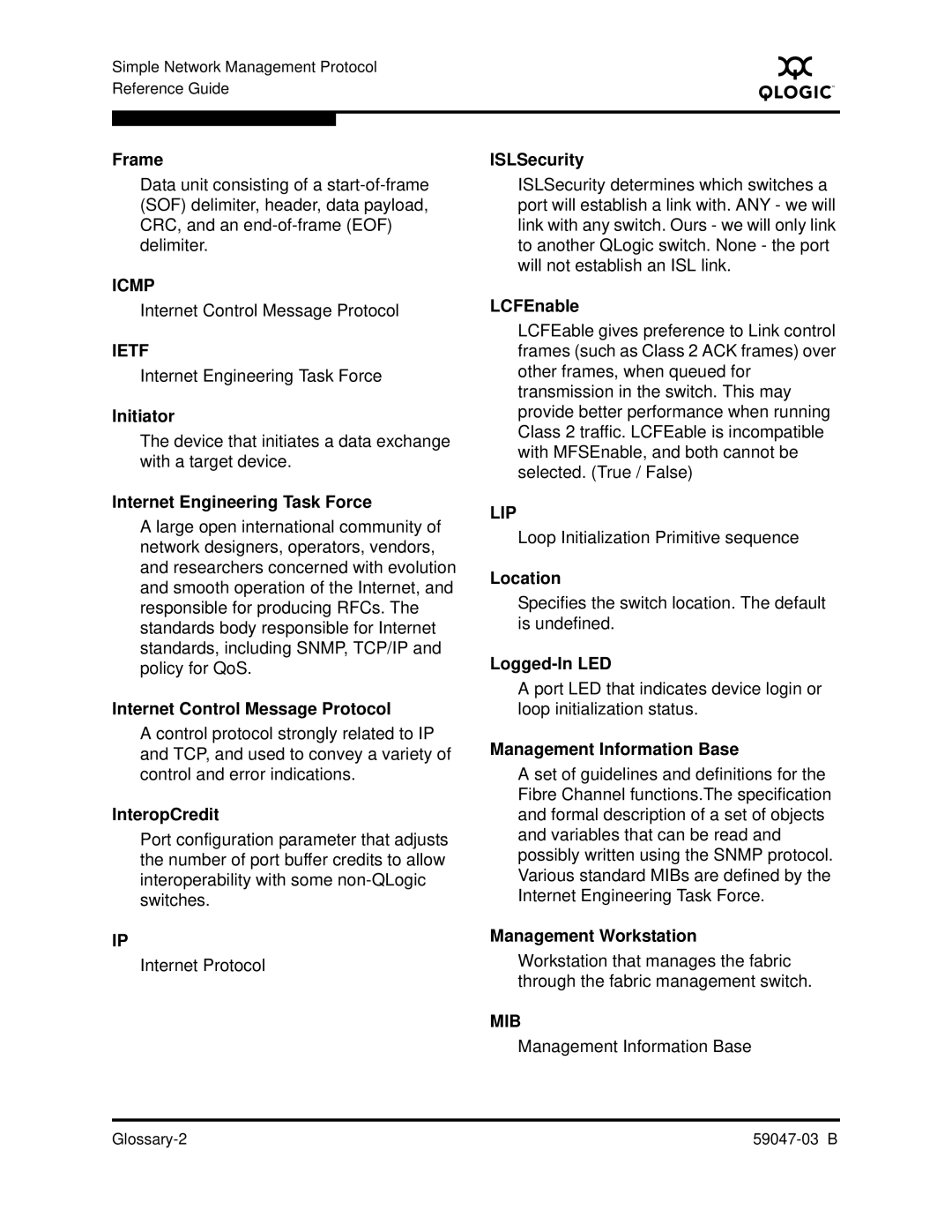
Simple Network Management Protocol Reference Guide
A
Frame
Data unit consisting of a
ICMP
Internet Control Message Protocol
IETF
Internet Engineering Task Force
Initiator
The device that initiates a data exchange with a target device.
Internet Engineering Task Force
A large open international community of network designers, operators, vendors, and researchers concerned with evolution and smooth operation of the Internet, and responsible for producing RFCs. The standards body responsible for Internet standards, including SNMP, TCP/IP and policy for QoS.
Internet Control Message Protocol
A control protocol strongly related to IP and TCP, and used to convey a variety of control and error indications.
InteropCredit
Port configuration parameter that adjusts the number of port buffer credits to allow interoperability with some
IP
Internet Protocol
ISLSecurity
ISLSecurity determines which switches a port will establish a link with. ANY - we will link with any switch. Ours - we will only link to another QLogic switch. None - the port will not establish an ISL link.
LCFEnable
LCFEable gives preference to Link control frames (such as Class 2 ACK frames) over other frames, when queued for transmission in the switch. This may provide better performance when running Class 2 traffic. LCFEable is incompatible with MFSEnable, and both cannot be selected. (True / False)
LIP
Loop Initialization Primitive sequence
Location
Specifies the switch location. The default is undefined.
A port LED that indicates device login or loop initialization status.
Management Information Base
A set of guidelines and definitions for the Fibre Channel functions.The specification and formal description of a set of objects and variables that can be read and possibly written using the SNMP protocol. Various standard MIBs are defined by the Internet Engineering Task Force.
Management Workstation
Workstation that manages the fabric through the fabric management switch.
MIB
Management Information Base
